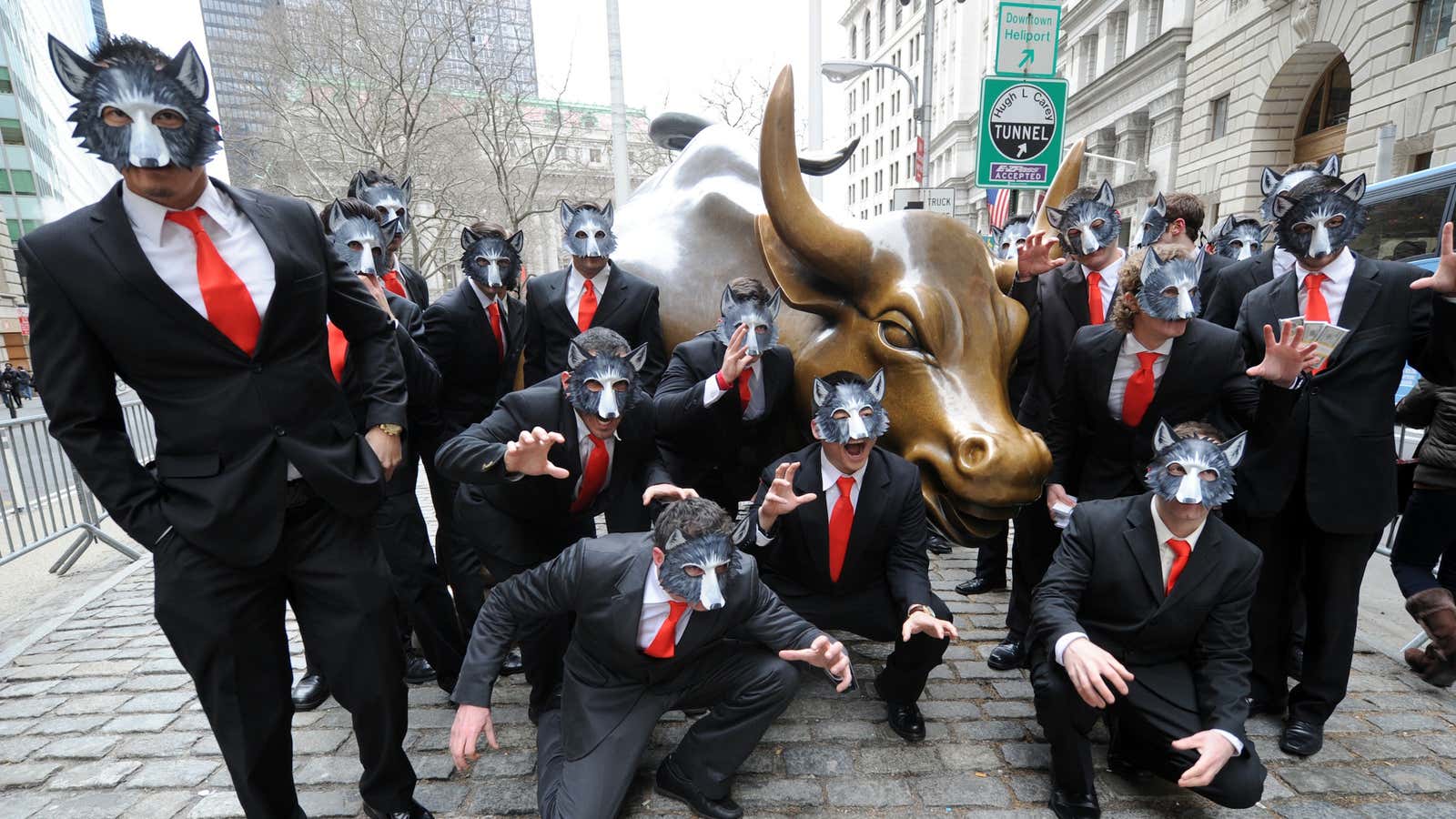Punched walls, broken phones, thrown pens, and slammed doors.
Those are all tactics allegedly employed by the chief investment officer at the high-yield debt fund Post Advisory, Henry Chyung, according to a legal document obtained by Bloomberg. Chyung denied the wall-punching, but admitted to “intensity.”
Over-the-top or authoritarian culture is much diminished on Wall Street since the 1980s. It has declined just about everywhere (paywall) in fact. But there are still holdouts who insist on continuing one of the most unpleasant tropes at investing organizations—that ”intensity,” which manifests as combativeness and straight-up aggression.
Former managers at the investment firm, a subsidiary of Principal Financial Group, allege they were forced out by a hostile work environment. Their lawsuit revealed a letter documenting the workplace troubles, as well as clients lost. Post Advisory counters that two former executives working at a new bond fund violated non-compete agreements.
And Principal Financial Group’s CEO, Jim McCaughan, argues that even if the antics described in the legal case were exaggerated or untrue, there’s good reason for such behavior.
“The high performance of this organization kind of doesn’t come for free,” McCaughan told Bloomberg. “It comes with, in this particular case, quite a combative, quite a tough culture. And I can understand it doesn’t appeal to everyone, but it does produce the results.”
The idea, strangely persistent in parts of finance, that pressure and combat are required to produce top performance, is one that managers should reject. Big goals, incentives, high expectations, and seriousness are all fine. Punching walls, yelling and screaming, and forbidding eye contact aren’t.
Beyond the fact that most people prefer to work somewhere where threats, arguments, and violence against office fixtures aren’t part of the daily experience, the aggressive exercise of power has negative consequences for companies.
There’s a large body of research which suggests that extreme workplace pressure tends to lead to more immoral behavior. Unreasonable time demands and a narrow focus on goals both lead people to behave less ethically. There’s nothing more likely to ratchet up that kind of pressure than a boss who responds to a delay, or a failure of any kind, with a violent outburst. We also know that leaving people in constant fear of losing their jobs has health consequences, and reduces job performance in the long run.
These behaviors may be one of the reasons the buy-side skews so male. A recent report from recruiting startup Vettery found that 81% of investment banking analysts in this years class that went into private equity were male. The figure was 90% for large hedge funds.
The combative, tough culture that McCaughan praises may boost performance in the short term, but it brings with it long-term adverse consequences.
Investment firms are more likely than most businesses to be dependent upon one strong, sometimes quirky, personality. These men (they’re mostly men) often came up in the more aggressive environment of the Wall Street of the past—and they try to preserve it in their own fiefdoms.
Not all the pockets of strangeness that persist in finance are are particularly combative, and some are successful, like Bridgewater’s highly unusual (pdf) approach to transparency. Others fall off the rails over time, like Bill Gross at Pimco, or Steve Cohen at SAC Capital.
McCaughan is wrong in attributing Post Advisory’s success to its “tough” culture. Outperformance does often give this kind of behavior a temporary pass—and sure, high compensation or a firm’s prestige may convince employees to put up with unacceptable behavior—but it’s not the overwrought managerial behavior that drives employees to succeed.
And, Matt Levine writes at Bloomberg View, such a culture tends to concentrate a small pool of people who thrive on conflict and drama.
“Does high performance require a lot of wall-punching or eye-contact-avoidance?” Levine writes. ”That seems like sort of a sad trade-off. But I bet someone somewhere is reading this and saying ‘yeah, that culture totally appeals to me, sign me up!’ And so the culture perpetuates itself.”
